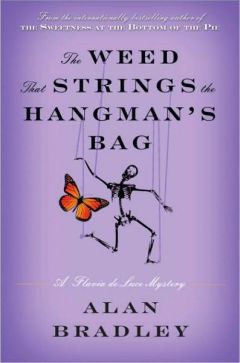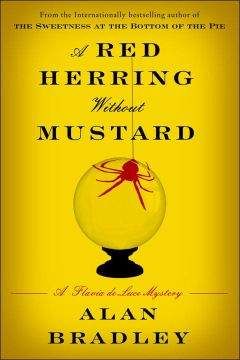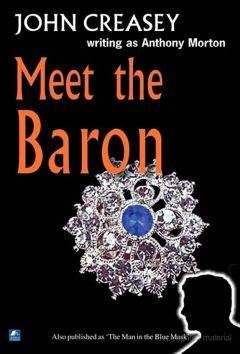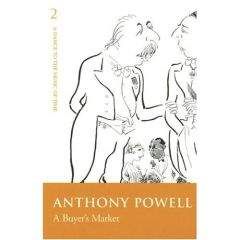Alan Bradley - The Weed That Strings the Hangmans Bag
На сайте mybooks.club вы можете бесплатно читать книги онлайн без регистрации, включая Alan Bradley - The Weed That Strings the Hangmans Bag. Жанр: Прочее издательство неизвестно,. Доступна полная версия книги с кратким содержанием для предварительного ознакомления, аннотацией (предисловием), рецензиями от других читателей и их экспертным мнением.
Кроме того, на сайте mybooks.club вы найдете множество новинок, которые стоит прочитать.
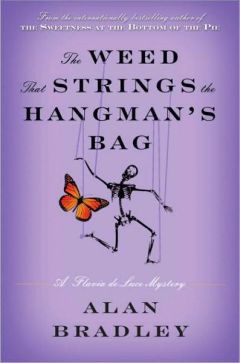
Alan Bradley - The Weed That Strings the Hangmans Bag краткое содержание
The Weed That Strings the Hangmans Bag читать онлайн бесплатно
"My name is Mother Goose."
It was Nialla!
There were oohs and aahs from the audience, and she sat, smiling patiently, until the excitement died down.
"Would you like me to tell you a story?" she asked, in a voice that was not Nialla's, yet at the same time, not anyone else's.
"Yes!" everyone shouted, including the vicar.
"Very well, then," said Mother Goose. "I shall begin at the beginning, and go on till I come to the end. And then I shall stop."
You could have heard a pin drop.
"Once upon a time," she said, "in a village not far away ..."
And as she spoke those words, the red velvet curtains with their gold tassels opened slowly to reveal the cozy cottage I had glimpsed from behind the scenes, but now I could see it in far greater detail: the diamond-paned windows, the painted hollyhocks, the three-legged milking stool ...
"... there lived a poor widow with a son whose name was Jack."
At that, a boy in short leather pants and an em broidered jacket and jerkin came strolling into the scene, whistling off-key to the music.
"Mother," he shouted, "are you at home? I want my supper."
As he turned to look around, his hand shielding his eyes from the light of the painted sun, the audience let out a collective gasp.
Jack's carved wooden face was a face we all recognized: It was as if Rupert had deliberately modeled the puppet's head from a photograph of Robin, the Inglebys' dead son. The likeness was uncanny.
Like a wind in the cold November woods, a wave of uneasy whispers swept through the hall.
"Shhh!" someone said at last. I think it was the vicar.
I wondered how he must feel at being confronted with the face of a child he had buried in the churchyard.
"Jack was a very lazy boy," Mother Goose went on. "And because he refused to work, it was not long before his mother's small savings were completely gone. There was nothing to eat in the house, and not so much as a farthing left for food."
Now the poor widow appeared, coming round the side of the cottage with a rope in her hand, and at the other end of the rope, a cow. Both of them were little more than skin and bones, but the cow had the advantage of a gorgeous pair of huge brown eyes.
"We shall have to sell the cow to the butcher," the widow said.
At this, the cow's enormous eyes turned sadly towards the widow, then towards Jack, and finally towards the audience. "Help me!" they seemed to say.
"Ahhhh," everyone said at once, on a rising note of sympathy.
The widow turned her back on the poor creature and walked away, leaving Jack to do the dirty work. No sooner was she gone than a peddler appeared at the gate.
"Marnin', Squire," he said to Jack. "You looks like a sharpish lad — the kind o' lad what might be needin' some beans."
"I might," said Jack.
"Jack thought of himself as a shrewd trader," Mother Goose said, "and before you could say 'Llanfairpwllgwyngyllgogerychwyrndrobwyllllantysiliogogogoch' — which is the name of a place in Wales — he had traded the cow for a handful of beans."
The cow went all stiff-legged and dug in its heels as the peddler dragged it off, and Jack was left standing, looking at the little pile of beans in his palm.
Then suddenly his mother was back.
"Where's the cow?" she demanded. Jack pointed to the road, and held out his hand.
"You dunderhead!" the widow shrieked. "You stupid dunderhead!"
And she kicked him in the pants.
At this, a great laugh went up from the children in the audience, and I have to admit I chuckled a little myself. I'm at that age where I watch such things with two minds, one that cackles at these capers and another that never gets much beyond a rather jaded and self-conscious smile, like the Mona Lisa.
At the kick, Jack actually flew right up into the air, scattering beans everywhere.
Now, the whole audience was rocking with laughter.
"You shall sleep in the chicken coop," the widow said. "If you're hungry, you can peck for corn."
And with that, she was gone.
"Poor old I," Jack said, and stretched himself out on the bench at the cottage door.
The sunlight faded rather quickly, and suddenly it was night. A full moon shone above the folded hills. The lights in the cottage were on, their warm orange light spilling out into the yard. Jack twitched in his sleep — shifted position — and began to snore.
"But look!" said Mother Goose. "Something is stirring in the garden!"
Now the music had become mystical — the sound of a flute in an oriental bazaar.
Something was stirring in the garden! As if by magic, a thing that looked at first like a green string, and then like a green rope, began to snake up from the soil, twisting and twining like a cobra in a fakir's basket, until the top was out of sight.
As it rose into the sky, and night changed quickly to day, the stalk grew thicker and thicker, until at last it stood like a tree of emerald green, dwarfing the cottage.
Again, the music was "Morning."
Jack stretched and yawned and rolled clumsily off the bench. With hands on hips, he bent back impossibly far at the waist, trying to loosen his stiff joints. And then he spotted the beanstalk.
He reeled back as if he had been punched, fighting to keep his balance, his feet stumbling, his arms going like windmills.
"Mother!" he shouted. "Mother! Mother! Mother! Mother!"
The old lady appeared directly, broom in hand, and Jack danced crazily round her in circles, pointing.
"The beans, you see," said Mother Goose, "were magic beans, and in the night they had grown into a beanstalk that reached higher than the clouds."
Well, everyone knows the story of Jack and the Beanstalk, so there's no need for me to repeat it here. For the next hour, the tale unrolled as it has done for hundreds of years: Jack's climb, the castle in the clouds, the giant's wife and how she hid Jack in the oven, the magic harp, the bags of silver and gold — all of it was there, brought to brilliant life by Rupert's genius.
He held us captive in the palm of his hand from beginning to end, as if he were the giant, and all of us were Jack. He made us laugh and he made us cry, and sometimes both at the same time. I had never seen anything like it.
My head was buzzing with questions. How could Rupert operate lights, sound effects, music, and stage settings at the same time he was manipulating several marionettes and providing all the voices? How had he made the beanstalk grow? How could Jack and the giant run such a merry chase without their strings becoming entangled? How did the sun come up? And the moon?
Mother Goose was right: The beans had been magic, and they had entranced us all.
And now the end was near. Jack was scrambling down the beanstalk, bags of gold and silver at his waist. The giant wasn't far behind.
"Stop!" roared the voice of the giant. "Stop, thief, stop!"
Even before Jack reached the ground, he was calling down to his mother:
"Mother! Mother! Fetch the axe!" he cried, and taking it from her hands as he jumped to the ground, he began chopping furiously at the beanstalk, which seemed to recoil as if in pain from the sharp blade.
The music swelled to a crescendo, and there was a strange instant during which time seemed frozen. Then the beanstalk collapsed and a moment later the giant came crashing down to earth.
He landed in the front yard of the cottage, his huge torso dwarfing the dwelling, his glassy eyes staring blankly out over our heads. The giant was stone-cold dead.
The children shrieked — even some of the parents leapt to their feet.
It was, of course, Galligantus, the hinged monster I had seen before the show. But I'd had no idea how terrifying his fall and his death would be when seen from this point of view.
My heart was pounding at my ribcage. It was glorious!
"And so died Galligantus," said Mother Goose, "the cruel giant. After a time, his wife grew lonely in the sky, and found another giant to marry. Jack and his mother, now rich beyond their wildest dreams, lived, as all good people do, happily ever after.
"And we know that all of you will, too — each and every one of you."
Jack dusted off his hands, carelessly, as if killing a giant was an everyday affair.
The red curtains swept slowly closed, and as they did, all hell broke loose in the parish hall.
"It's the Devil!" shrieked a woman's voice at the back of the hall. "The Devil's took the little boy and shrinked him up! God help us! It's the Devil!"
I turned and saw someone flapping about in the open doorway. It was Mad Meg. She was pointing, jabbing her finger at the stage, but then she threw her hands up to cover her face. At that moment, the house lights came on.
The vicar was quickly at her side.
"No! No!" she shrieked. "Don't take old Meg! Leave her be!"
He somehow managed to get an arm around her shoulder, and led her gently but firmly off into the hall's kitchen where, for a minute or so, her poor cracked voice could be heard whimpering, "The Devil! The Devil! The Devil got poor Robin!"
A hush fell on the place. Parents began shepherding their children — all of them now subdued — towards the exits.
The women from the Ladies' Auxiliary did a bit of aimless tidying, then scurried away — probably to gossip, hands over mouths, I thought.
I found myself alone.
Nialla seemed to have vanished, although I had not seen her leave. Since I could hear the soft murmur of voices backstage, Rupert was presumably still up on the bridge of his puppet stage.
It was then that I thought of putting physics to work. As I have said, the hall's Victorian designers had made a perfect sound reflector of its interior. The vast expanses of the room's dark varnished paneling picked up the slightest sounds, and focused them wonderfully. By standing at the very center of the room, I found that, with my acute hearing, I could easily make out every word. One of the voices I had heard was Rupert's.
"Bloody hell!" he was saying, in a loud whisper. "Bloody hell, Nialla!"
Nialla said nothing, although I thought I heard a sob.
"Well, we shall have to put a stop to it. That's plain."
Put a stop to what? Had she told him she was pregnant? Or was he talking about his quarrel with Mutt Wilmott? Or with Gordon Ingleby?
Before I could overhear another word, the door to the kitchen opened, and the vicar came out into the hall with Mad Meg leaning on his arm, followed by Cynthia and two members of the Ladies' Auxiliary.
"It's out of the question," Cynthia was saying, "quite out of the question. The place is simply reeking with paint fumes. Furthermore, we don't have — "
"I'm afraid I must overrule you on this occasion, my dear. This poor woman needs somewhere to rest, and we can hardly send her packing back to — "
"A hovel in the woods?" Cynthia asked, a red flush rising in her cheeks.
"Flavia, dear girl," the vicar said as he spotted me. "Would you mind running ahead to the vicarage? The door is open. If you'll be kind enough to clear the books off the couch in my study ... it doesn't much matter where you put them. We shall be along directly."
Nialla appeared suddenly from behind the curtains. "Just a moment, Vicar," she said. "I'm coming with you."
I could see that she was holding herself together, but only just.
The vicarage study looked as if Charles Kingsley had just put down his pen and stepped out of the room. The bookcases, floor to ceiling, were jammed cheek-by-jowl with volumes which, to judge by their solemn bindings, could only have been of ecclesiastical interest. A cluttered, overflowing desk covered most of the room's single window, and a black horsehair sofa — an Everest of dusty books — leaned at a crazy angle on a threadbare Turkish carpet.
No sooner had I shifted the books to the floor than Nialla and the vicar arrived, leading Meg solicitously to the sofa. She seemed dazed, managing only a few vague mutters as Nialla helped her to recline and smoothed her filthy clothing.
A moment later, Dr. Darby's portly presence filled the doorway. Someone must have run up the high street to fetch him from his surgery.
"Um," he ventured, as he put down his black medical bag, opened the clasp, and had a good dig round inside. With a noisy rustle, he brought forth a paper bag and extracted a crystal mint, which he popped into his mouth.
With that detail out of the way, he bent over Meg for a closer look.
"Um," he said again, and reached into the bag for a syringe. He filled the thing from a little bottle of clear liquid, rolled up Meg's sleeve, and slid the needle into her arm.
Meg made not a sound, but looked up at him with eyes like a sledgehammered horse.
From a tall wardrobe in the corner — as if by magic — the vicar produced a pillow and a brightly colored afghan.
"Afternoon naps." He smiled, covering her gently, and Meg was snoring even before the last one of us had stepped softly from the room.
"Vicar," Nialla said abruptly, "I know you'll think it awful of me, but I have a very great favor to ask."
"Ask away," the vicar said, with a worried glance at Cynthia, who was hovering at the far end of the hall.
"I'd be eternally grateful if you could permit me a hot bath. I haven't had one for so long, I feel like something that lives under a stone."
"Of course, my dear," the vicar said. "It's upstairs at the end of the hall. Help yourself to soap and towels.
"And don't mind the little yacht," he added with a smile. "It's mine."
As Nialla climbed the stairs, a rubber heel squeaked on waxed floorboards, and Cynthia was gone.
"Cynthia has offered to run you over to Buckshaw," the vicar said, turning to me, and I knew instantly that he was fibbing. "I expect you'll be back this evening with your family?"
"Oh, of course," I said. "They're all jolly keen on Jack and the Beanstalk."
With Gladys strapped precariously to the roof, we crept slowly along the lane in the tired, dusty Oxford. Cynthia, like vicar's wives in general, had a tendency to over-control, steering from side to side in a series of pie crust scallops between the hedges.
Sitting beside her in the front seat, I had a good opportunity to examine her overbite, close-up and in profile. Even with her mouth shut, she showed a remarkable amount of tooth, and I found myself seriously rethinking my rebellion against braces.
"There's always something, isn't there?" she said suddenly, her face still on fire from her recent humiliation. "One is forever being rousted out of one's own house by someone more needy — not that I mind, of course. First, it was the Gypsies. Then, during the war, the evacuees. Then, last year, the Gypsies came again. Denwyn went to them in Gibbet Wood, and invited them personally, each and every one, to attend the Holy Eucharist. Not a single man jack of them ever showed up, of course. Gypsies are savages, essentially, or perhaps Roman Catholics. Not that they don't have souls — they do, naturally — but one always feels that theirs are so much shadier than one's own."
Похожие книги на "The Weed That Strings the Hangmans Bag", Alan Bradley
Alan Bradley читать все книги автора по порядку
Alan Bradley - все книги автора в одном месте читать по порядку полные версии на сайте онлайн библиотеки mybooks.club.
